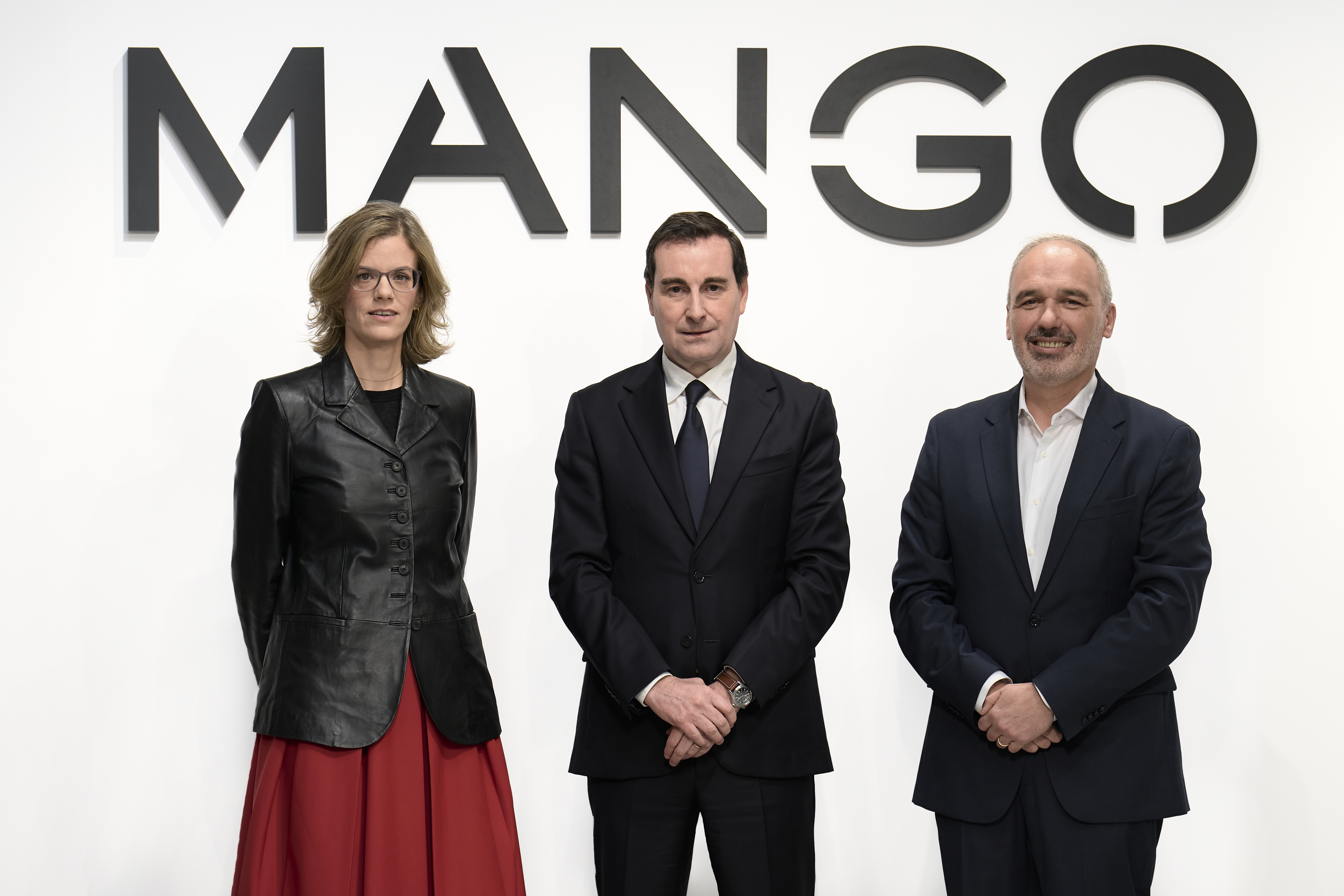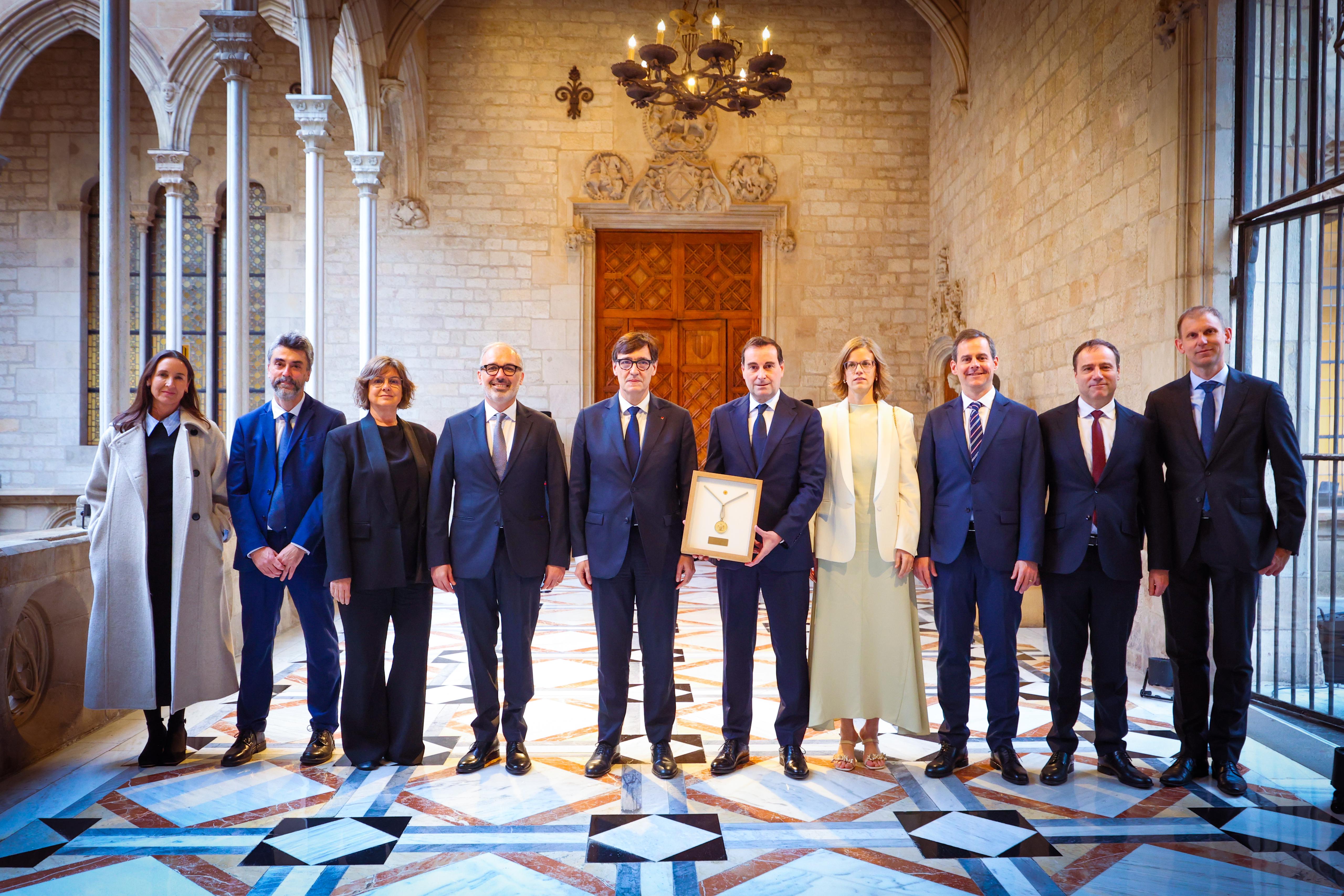The Science Based Targets initiative (SBTi) approves Mango’s emissions reduction targets to fight climate change
The Science Based Targets initiative (SBTi) approves Mango’s emissions reduction targets to fight climate change
-
-
To coincide with World Environment Day, on 5 June, Mango announced today that the SBTi has validated the fashion group’s science-based targets as in line with the goals of the Paris Agreement.
-
By 2030, the group aims to reduce total scope 1 and 2 emissions by 80% and scope 3 emissions by 35%, compared to 2019, and achieve net-zero emissions by 2050.
-
To fight climate change, Mango is committed to prioritising sustainable or environmentally friendly raw materials in its products, purchasing renewable energy and implementing energy efficiency actions throughout its value chain, among many others.
Mango, one of Europe’s leading fashion groups, is strengthening its commitment to sustainability and fighting climate change. Today, the Science Based Targets initiative (SBTi) has confirmed that the group’s targets to reduce greenhouse gas (GHG) emissions are in line with the Paris Agreement.
The publication, which has been drafted to coincide with World Environment Day on 5 June, signifies the approval of the company’s targets to fight climate change by an independent and internationally recognised institution.
The SBTi is a joint initiative of CDP, the United Nations Global Compact, the World Resources Institute (WRI) and the World Wildlife Fund (WWF). The SBTi defines and promotes best practice in science-based target setting, offers resources and guidance to reduce barriers to adoption, and independently assesses and approves companies’ targets.
“It is excellent news for Mango that an internationally-recognised organisation like the SBTi has ratified and trusts in the our company's emissions reduction targets”, according to Toni Ruiz, Mango CEO, who adds: “now it is time for us to put all the necessary resources into achieving our annual targets in the short and long term, and to minimise our impact on the environment”.
The Mango strategy
Mango’s Strategic Sustainability Plan aims to achieve net-zero emissions by 2050. To achieve this goal, the company has set itself intermediate targets for 2030: an 80% reduction in its direct greenhouse gas emissions, as well as those generated by the energy it consumes (scope 1 and 2), and a 35% reduction in the greenhouse gas emissions produced in its supply chain, products and services, and fuel and energy; and transport and distribution (scope 3), all considering 2019 as the base year.
In order to comply with its science-based targets, Mango has a cross-departmental action plan for the entire company. The policies to reduce scope 1 and 2 emissions are principally focused on areas such as: energy efficiency, the purchase of renewable energy and the electrification of the company’s fleet of vehicles, among many others.
In 2021 the clothing group increased its total consumption of renewable energy with guarantee of origin by 19.5% to 59% of the total energy consumed. Last year, almost 100% of the electrical energy supplied at its headquarters, warehouses and company stores in Spain was of renewable origin, as was 100% of the energy consumed in virtually all company stores in Austria, France, Greece, the Netherlands, Italy, Poland, the United Kingdom, the Czech Republic, Sweden and Switzerland, as well as its offices in France.
For its part, to reduce scope 3 emissions, Mango will focus on progressively increasing the number of garments with Committed characteristics within its collection, by prioritising sustainable or environmentally friendly materials such as recycled cotton, organic cotton, recycled polyester and cellulose fibres with traceable origin, among others.
Last February, the company brought forward its sustainability targets after achieving that 80% of all garments in 2021 were marketed under the Committed label. Mango also forecasts that by 2025, 100% of the polyester used will be recycled, 100% of the cellulose fibres used will be of controlled origin and traceable, and that 100% of the cotton used will be more sustainable.
The Mango Sustainability Plan also envisages the participation and collaboration of numerous organisations and initiatives to minimise its impact on the environment. In 2019, the company reaffirmed its commitment to sustainability by signing up to the Fashion Pact, the first global movement in the fashion industry to join forces and work together to fight climate change, and in 2020 Mango signed the United Nations Fashion Industry Charter for Climate Action, which sets out sixteen principles to advance together to reduce the impact of the fashion industry on the planet.
-
Mango, one of Europe's leading fashion groups, is a global company with design and creativity at the heart of its business model and a strategy based on constant innovation, the pursuit of sustainability and a complete ecosystem of channels and partners. Founded in Barcelona in 1984, the company closed 2024 with a turnover of over 3,300 million euros, with a third of its business coming from the online channel and a presence in more than 120 markets. More information at mangofashiongroup.com




